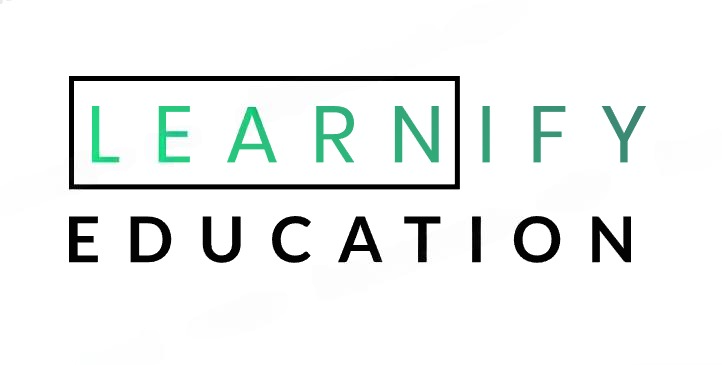Financial Flexibility
Students begin their coursework without paying tuition fees upfront. Payment is deferred until after they land a job, making it a less risky financial investment.













Pay after placement courses online represent a modern educational model designed to alleviate the financial burden of higher education. Unlike traditional courses that require upfront payments, these courses allow students to enroll and complete their studies without immediate financial commitments. Instead, the course fees are paid only after the student secures employment.

Financial Flexibility
Students begin their coursework without paying tuition fees upfront. Payment is deferred until after they land a job, making it a less risky financial investment.
Job Assurance
These programs often come with strong job placement support. The primary goal is to equip students with the skills and knowledge necessary to secure employment in their chosen field.
Industry-Relevant Training
The curriculum is typically designed in collaboration with industry experts to ensure that students gain practical, job-ready skills. This focus on real-world applications enhances employability.
Flexible Learning
Offered online, these courses provide flexibility in terms of study schedules and locations, allowing students to learn at their own pace and balance other commitments
Diverse Options
Available in various fields including technology, business, design, and healthcare, these courses cater to a wide range of career aspirations and interests.

Reduced Financial Risk
With no initial financial burden, students can focus on their studies without the stress of managing tuition fees.
Increased Access
More individuals have the opportunity to pursue higher education and career development, regardless of their financial background.
Enhanced Job Prospects
The focus on job placement and industry-relevant skills increases the likelihood of securing employment upon course completion.
In summary, pay after placement courses online offer an innovative and accessible pathway to advanced education and career advancement, ensuring that financial constraints do not hinder professional growth.
| Field | Course Types | Description |
|---|---|---|
| Technology and IT | Software Development, Data Science, AI and ML, Cybersecurity | Courses focus on programming, data analysis, AI, and security skills. |
| Business and Management | Digital Marketing, Project Management, Business Analytics, Financial Management | Covers marketing, project management, analytics, and financial skills. |
| Creative and Design | Graphic Design, UI/UX Design, Multimedia Arts, Web Design | Includes design principles, user experience, multimedia, and web design. |
| Healthcare | Medical Coding, Healthcare Administration, Nursing Informatics, Clinical Research | Focuses on coding, management, informatics, and research in healthcare. |
| Finance and Accounting | Accounting, Financial Analysis, Corporate Finance, Taxation | Teaches accounting practices, financial modeling, corporate finance, and tax laws. |
| Human Resources (HR) | HR Management, Talent Acquisition, Employee Training and Development, Compensation and Benefits | Covers recruitment, talent management, training, and compensation strategies. |

The syllabus for pay after placement courses online is designed to provide students with comprehensive, industry-relevant knowledge and skills. Here’s a breakdown of typical syllabi for various fields:

Eligibility criteria for pay after placement courses online can vary depending on the institution and the specific course. However, common requirements generally include:
English Language Skills: Proficiency in English may be required, especially for international courses. Proof of language proficiency (e.g., TOEFL, IELTS) might be needed.

The duration of pay after placement courses online can vary based on the field of study and the depth of the program. Here’s a general overview of typical durations:

The admission procedure for pay after placement courses online typically involves the following steps:

Here are some of the top specializations offered in pay after placement courses online:
| Institution | Specializations | Features |
|---|---|---|
| UpGrad | Data Science, Digital Marketing, Software Engineering, and more | Industry-aligned curriculum, career support, job placement assistance |
| Simplilearn | Digital Marketing, Data Science, Cybersecurity, Project Management | Practical training, certification programs, job placement support |
| EdX (via partner institutions) | Business Analytics, Data Science, AI, and more | Courses from global universities, flexible payment options including pay after placement |
| Coursera (via partner institutions) | IT, Business Management, Data Science, and others | Collaboration with top universities and companies, some programs offer income-share agreements |
| Great Learning | AI, Machine Learning, Business Analytics, and more | Job-ready programs, career guidance, placement assistance |
| NIIT | IT, Banking, Finance | Industry-specific programs, career support, placement guarantees |
| Manipal ProLearn | Data Science, Digital Marketing, Finance, and more | Comprehensive programs, placement assistance, career support |
| TalentSprint | Data Science, AI, Deep Learning | Advanced learning programs, career support, job placement options |
Financial Flexibility
No upfront costs; pay only after securing a job.
Focused on Placement
Strong career support and industry-relevant skills.
Quality Assurance
Institutions are motivated to help you find a job.
High Costs
Post-placement fees can be substantial if you secure a high-paying job.
Employment Pressure
Pressure to find a job within a specific timeframe.
Variable Quality
Quality of programs and career support may vary.












